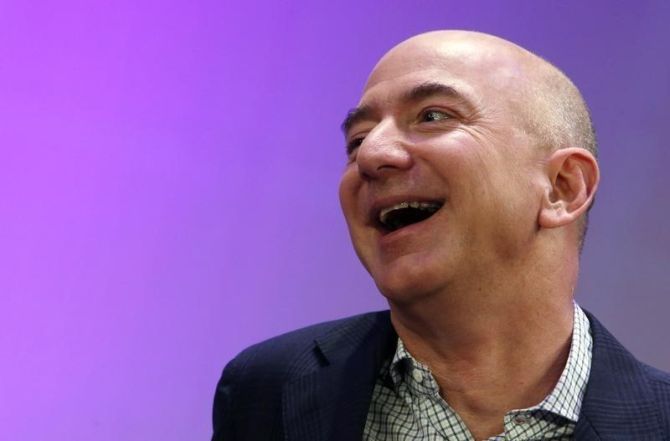What seems to have changed over the last two-three years is that earlier the CCI considered online as another channel for retail sales, while it now seems dividing the retail market into two -- online and offline, and looking at them separately, say competition law experts.

The country’s anti-trust watchdog could play a party pooper in the online shopping paradise.
Exclusive deals at two e-commerce websites, Amazon and Flipkart, and large scale discounts on products have come under the scanner of the Competition Commission of India (CCI), in what is being seen as an about-face that portends hardening of its stance going forward.
This marks the first formal order of an investigation by the CCI into market practices by the two e-commerce giants.
However, CCI Chairman Ashok Gupta claims the two have had many run-ins with the fair play regulator in the past.
What seems to have changed over the last two-three years is that earlier the CCI considered online as another channel for retail sales, while it now seems dividing the retail market into two -- online and offline, and looking at them separately, say competition law experts.
The present investigation was ordered on the complaint of Delhi Vyapar Mahasangh, a society comprising smaller traders of smartphones and related accessories.
The Commission’s complaint was filed under Section 3 (1) -- read with (4) -- of the Competition Act. It raises the issue of appreciable adverse effect on competition because of the exclusive launch of products, coupled with preferential treatment to a few sellers and the discounting practices.
Experts, however, point out that deep discounting and predatory pricing may be violations of competition law only if undertaken by a dominant enterprise. “The CCI’s order shies away from finding either Flipkart or Amazon dominant in any market,” says Abdullah Hussain, partner in law firm Luthra & Luthra.
While the Commission has denied the complaint of joint dominance, experts point that in the Amazon-Flipkart case, the CCI considered the market position of the platforms, while altogether ignoring the market position of smartphone manufacturers.
“It depends on how the CCI defines the relevant market. It seems to be diverting to two markets -- online and offline,” says Nisha Kaur Uberoi, partner and national head, competition law at Trilegal.
In November 2018, a similar complaint filed by All India Online Vendors Association against Flipkart was dismissed by the CCI, which acknowledged that the marketplace-based e-commerce model is an evolving one of retail distribution in India and is of very technology-driven nature.
“Recognising the growth potential, as well as the efficiencies and consumer benefits that such markets can provide, the Commission is of the considered opinion that any intervention in such markets needs to be carefully crafted, lest it stifles innovation,” the Commission said in its 2018 order.
In 2015, the Commission closed its first case filed against both companies on the ground that it was “very unlikely” that an exclusive arrangement between a manufacturer and an e-portal would have any anti-competitive effects, particularly as most of the products, such as mobile phones and other electronic items, were not “trodden by monopoly or dominance”.
So, what has changed over the last two-three years that the Commission revised its stance?
According to Uberoi, the Commission’s justification for a change in market definition pertains to the pace of evolution of the digital market, especially so for the online travel market.
“The pace of evolution of the digital market is significantly faster as compared to the traditional market, and the assessment needs to be done considering the current market realities and competition dynamics,” says Uberoi.
The Commission’s latest study on the e-commerce market is almost a precursor to the Amazon-Flipkart probe order and it also sheds light on the Commission’s new thought process. Its findings, while calling for self-regulation, points out the same problem areas as raised in the latest complaint that is being probed.
“The CCI’s order is not unjustified. It has shown respect for new technology and said that these companies bring benefit to the customer… The study of e-commerce was done to better understand the sector and having done that, these issues were raised,” notes Vinod Dhall, a competition law expert.
Globally, too, regulatory action against digital players is on the rise.
“There is a growing call for action globally as the world’s digital giants, such as Google, Amazon, Facebook, and Apple face antitrust investigations in the US and Europe for many of the same issues identified by the CCI in its report,” notes Hussain.
Analysts also point out that the Commission has changed its composition over the last two years. The CCI has an all-new cast with a new chairperson taking charge in November 2018 and two members getting appointed soon after.
In the recent past, online travel major MakeMyTrip, too, had come under the scrutiny of the regulator.
Until now only the online food delivery platforms have been able to keep away from the regulator’s gaze. With its hardened stand, it may not be far when other major online players also feel the heat, feel many experts.











